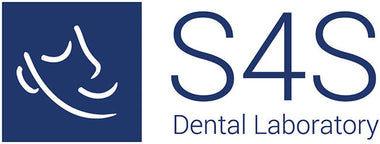BRUXISM AWARENESS WEEK
The past 18 months have stripped people of their jobs, homes and loved ones - enforcing painfully long periods of isolation on us all and making life pretty miserable. Living like this has pushed a lot of people into a constant state of stress, as we anticipate the next gut-wrenching news report.
In a study by the Mind charity, 68% of young people and 51% of adults, in the UK, reported that their mental health had worsened over the pandemic, conveying just how much of an impact this virus has had on us.
From a weakened immune system to premature aging - the effects of stress and anxiety can damage your health in irreversible ways. But what many don’t realise is that stress can also have a massive impact on your teeth.
At S4S, we launched Bruxism Awareness Week to spark up a conversation on the condition, enlightening sufferers on the signs and symptoms to look out for and educating the public on the condition itself. After the turbulent time we’ve had, Bruxism Awareness Week is more important than ever, with a very likely increase in stress related conditions such as Bruxism.
What is Bruxism?
Bruxism is a condition that affects up to 80% of the population at stage in their life, where the teeth grind and clench causing tooth wear, breakages, pain, limited movement of the jaw joint (temporomandibular joint disorder), migraines and headaches. The cause is not yet fully understood, but there are a range of factors that are thought to be responsible for the condition, including stress, alcohol, anxiety and smoking (to name a few).
Symptoms to look out for in patients include:
- Migraines and Headaches on waking
- Broken teeth
- Stiff neck and jaw
- Poor sleep quality
- Tooth Wear.
The side effects above are not typically associated with the condition, other than damage to teeth, which is why it is overlooked so often. This constant misdiagnosis leads to a lot of unhappy patients that go for years without any answers.
How to Stop Teeth Grinding?
At S4S we are dedicated to combating this condition, providing a simple yet effective treatment for sufferers. There are many ways to treat Bruxism, but we suggest the use of an Occlusal Splint, the SCi (Sleep Clench Inhibitor).
The SCi can be used for the prevention of symptoms associated with Bruxism, the treatment of certain types of TMD, the prevention of occlusal trauma, protection of restorations and implants in cases of severe Bruxism, and the prevention and treatment of chronic tension and type headache and migraine pain.
The SCi has many great benefits including:
- Excellent clinical results.
- Extreme Simplicity and quickness, taking only 20 minutes to fit (Chairside version).
- Excellent patient acceptance and compliance.
- Scientifically proven efficacy.
With a condition as prevalent as Bruxism, it’s very important to raise awareness- enlightening sufferers and encouraging them to seek a swift and simple treatment!
If you don’t already use our Bruxism appliances, then request an info pack today!
